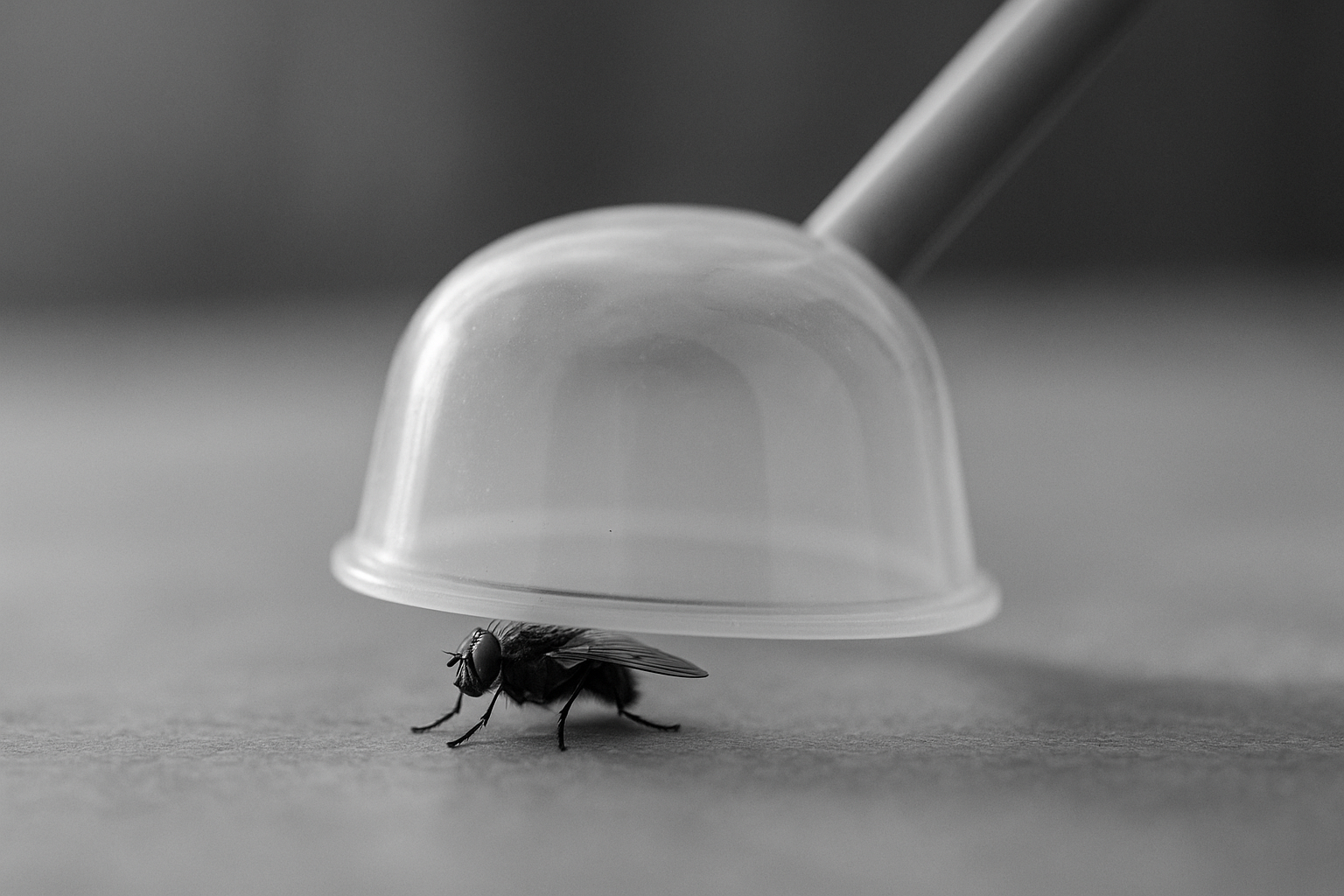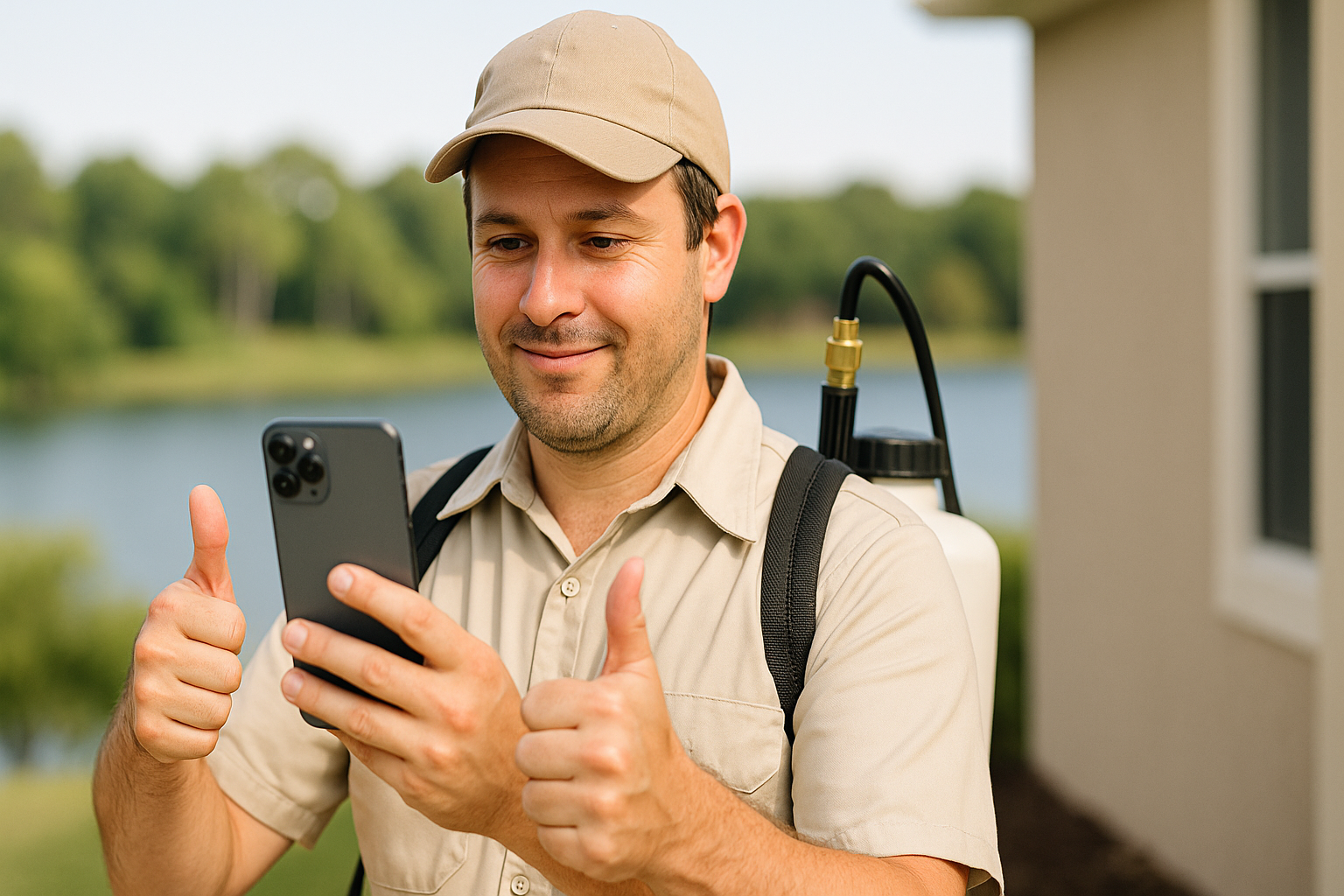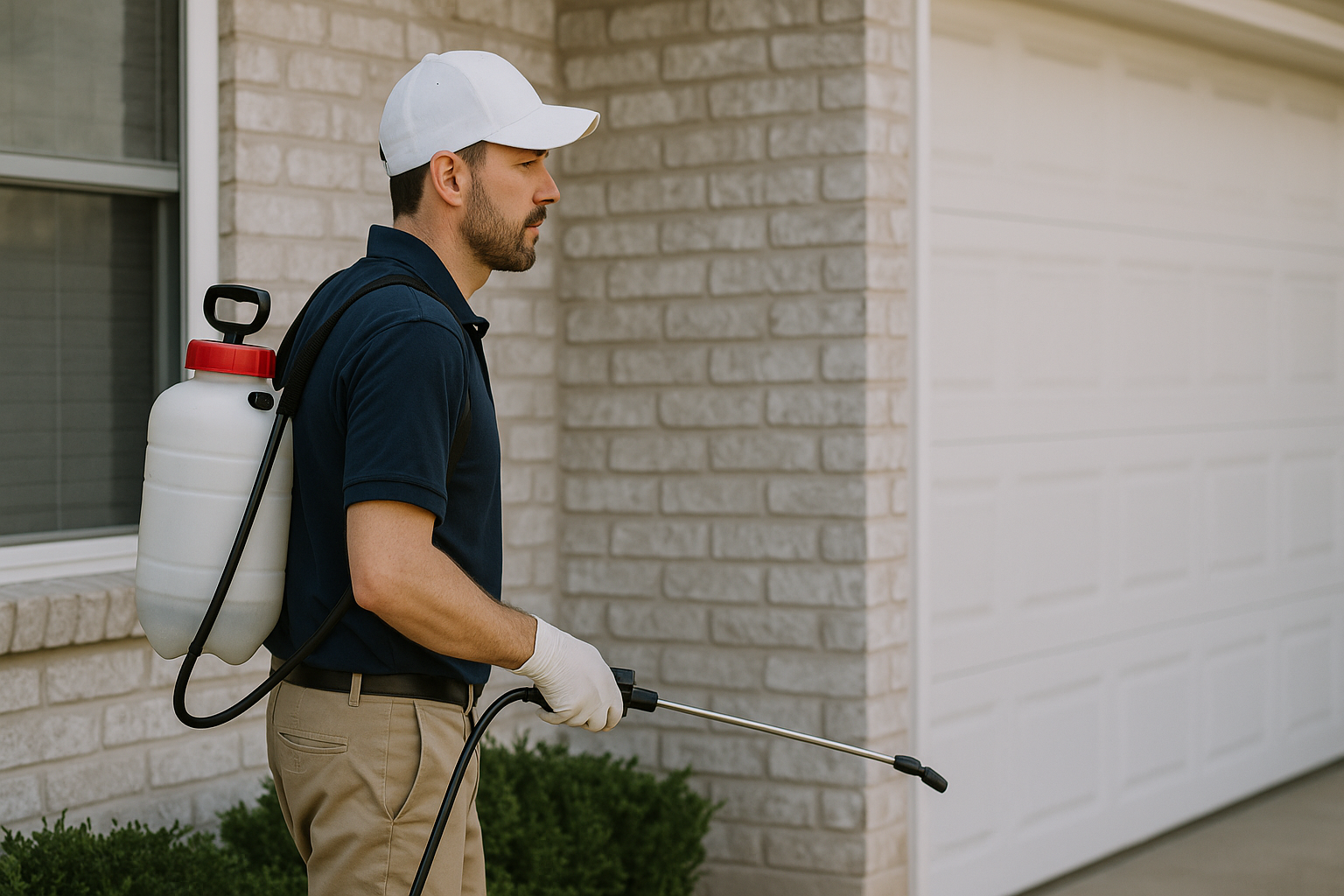Table of Contents
Understanding Non-Chemical Insect Control
In the bustling urban and desert environments of the UAE, managing insect populations without chemicals is becoming increasingly important. Non Chemical Insect Control focuses on controlling pest insects through natural, physical, or mechanical means rather than relying on synthetic pesticides. This method aligns with growing environmental awareness and the UAE’s regulatory frameworks prioritizing public health and environmental safety.
Non chemical methods reduce risks associated with chemical residues that can affect residents, pets, and even the local ecosystem, which is carefully preserved in cities like Dubai and Abu Dhabi. Understanding this approach involves recognizing how various techniques such as habitat modification, use of physical barriers, and biological control agents work together to sustainably reduce insect infestations.
Preparation and Assessment
Successful Non Chemical Insect Control starts with thorough preparation and assessment of the affected area. This step identifies the types of insects present and their breeding sites. In the UAE’s unique climate, it is essential to consider seasonal activity peaks of common insects such as cockroaches, ants, and mosquitoes.
Here is an effective checklist to guide your preparation:
- Inspect indoor and outdoor environments for insect trails, nests, and entry points
- Evaluate moisture levels as many insects thrive in humid conditions found near irrigation systems or faulty plumbing
- Record the extent and frequency of insect sightings
- Identify potential food sources attracting pests (food waste, pet feeding areas)
- Consult with local pest control authorities, such as those from Dubai Municipality’s Public Health Pest Control Section, for updated guidance and advice
Assessment ensures the control methods align with the specific types of insects and their behaviors typical in UAE residential or commercial properties.
Implementation of Stepwise Control Measures
Once the assessment is complete, implement the following step sequences to effectively reduce insect populations without chemicals. This structured approach ensures thorough and sustainable management.
Step 1: Physical Barriers and Environmental Modifications
Reducing insect access is fundamental. Install fine mesh screens on windows and doors to block entry points. Weatherstrip cracks and crevices around walls, pipes, and utility penetrations. In the UAE, where homes often have large open balconies and terraces, sealing these entry points is vital.
Environmental modifications include improving drainage to eliminate stagnant water, a major mosquito breeding ground, especially during the cooler months and after rare rainfalls. Landscape management involves removing overgrown vegetation near buildings and ensuring proper waste disposal.
Step 2: Mechanical Control Techniques
Manual removal methods like vacuuming cockroaches or trapping ants with sticky boards reduce pest populations immediately. Use traps designed to capture insects without harmful chemicals, placing them strategically based on the earlier assessment.
For larger areas, deploying light traps that attract nocturnal insects helps monitor and reduce populations. These techniques are particularly useful in commercial settings like food storage and hospitality industries in the UAE.
Step 3: Biological Control
Biological control utilizes natural predators and organisms to suppress insect numbers. For example, introducing certain predatory insects or nematodes in garden areas can control soil-dwelling larvae. This method suits UAE’s increasing interest in sustainable landscape management within urban green spaces.
Ensure any biological agents used comply with UAE environmental regulations and are sourced from reputable suppliers such as those listed on local green pest control (GPC) providers.
Step 4: Sanitation and Hygiene Improvements
Maintaining cleanliness plays a pivotal role in non chemical insect control. Remove food residues, clean kitchen appliances, and regularly empty trash bins. In UAE homes and businesses, controlling moisture with air conditioning and fixing leaks drastically reduces pest-attracting conditions.
In food-related industries, strict adherence to HACCP principles enforced by the UAE Ministry of Health ensures pest management sustainability without reliance on chemicals.
Monitoring and Maintenance Checklist
Continuous monitoring prevents re-infestation and ensures control measures remain effective. Use this checklist to maintain non chemical insect control systems:
| Action | Frequency | Notes |
|---|---|---|
| Inspect entry points and repair any damages | Monthly | Focus on weather stripping and screens |
| Check and replace mechanical traps and monitors | Biweekly | Adjust placement based on pest activity |
| Evaluate moisture levels around premises | Monthly | Particularly after irrigation or rainy days |
| Perform sanitation rounds to remove potential attractants | Weekly | Includes waste disposal and cleaning |
| Document pest sightings and activities | Ongoing | For trend analysis and action adjustment |
Incorporating this maintenance plan supports long-term success in the UAE’s high-temperature environment where insect lifecycles can be rapid.
Best Practices and Local UAE Regulations
Adopting best practices underpinned by local UAE regulations ensures that your non chemical insect control methods are safe, effective, and compliant. The Dubai Municipality and other emirate authorities regulate pest control to safeguard community health.
Key recommendations include:
- Engaging certified pest control professionals experienced in Non Chemical Insect Control and local conditions
- Using pest control solutions registered and approved by UAE regulators
- Prioritizing integrated pest management (IPM) approaches that combine inspection, non chemical methods, and minimal chemical use only when absolutely necessary
- Educating residents and staff on maintaining hygienic environments to support control efforts
For detailed regulatory guidelines and assistance, refer to the official Dubai Municipality Public Health Pest Control Section or local equivalents in Abu Dhabi and Sharjah.
Conclusion & Call to Action
Implementing Non Chemical Insect Control in the UAE involves a well-planned sequence of steps emphasizing environmental assessment, physical and biological methods, and ongoing maintenance supported by local regulations. This approach protects public health while preserving the natural environment.
Start today by conducting a detailed assessment of your property using the checklists provided. Engage with certified local experts and adopt sustainable practices to ensure your home or business remains pest-free safely and effectively.
For professional guidance and available green pest control options, visit Saniex Green Pest Control and follow updates from the Dubai Municipality Public Health Pest Control Section.
Take control of your environment sustainably with these 5 essential steps for non chemical insect control.
Effective Strategies for Non Chemical Insect Control in the UAE
As concerns over chemical insecticides grow due to their environmental impact and potential health risks, many residents and businesses in the UAE are turning to Non Chemical Insect Control methods. These approaches prioritize sustainability, safety, and long-term effectiveness, aligning with regulatory guidance from Dubai Municipality, the Ministry of Health and Prevention (MOHAP), and other local authorities focused on public health and environmental protection. By leveraging natural processes, mechanical barriers, and biological controls, these methods offer practical alternatives that help maintain pest-free environments without relying on harmful synthetic chemicals.
Physical and Mechanical Methods
One of the foundational pillars of non chemical insect control is the use of physical barriers and mechanical means to prevent insects from entering or thriving within spaces. In the UAE’s urban environments like Dubai and Abu Dhabi, where homes and commercial properties often rely on modern construction and air-conditioned interiors, these methods can be remarkably effective.
Common practices include:
- Sealing entry points: Gaps around windows, doors, and utility conduits are common entryways for insects like cockroaches and ants. Using weather-resistant sealants or insect-proof mesh screens, recommended by the Dubai Municipality’s pest control regulations, can significantly reduce infestations.
- Insect traps: Non-chemical traps, such as sticky traps or light traps, attract and capture insects without toxic substances. For example, UV light traps installed in commercial kitchens in Sharjah or Ajman are often used to control flying insects naturally.
- Manual removal: For smaller infestations, manual methods such as vacuuming or handpicking insects can be an immediate and chemical-free solution.
Integrating these methods with rigorous cleaning routines is important, as food residues and moisture attract pests like ants and flies, especially in the UAE’s hot climate.
Biological Control: Harnessing Nature’s Own Solutions
Biological control involves utilizing natural predators or parasites to suppress insect populations, providing an eco-friendly alternative in residential gardens, agricultural spaces, and public green areas managed by authorities such as the Abu Dhabi Agriculture and Food Safety Authority (ADAFSA).
Some biological agents used in the UAE include:
- Ladybugs (Coccinellidae): These beetles feed on aphids and scale insects, common garden pests in the UAE’s coastal plantations and agricultural zones.
- Parasitic Wasps: These tiny wasps lay eggs inside pest larvae like caterpillars or whiteflies, naturally reducing their populations without chemical sprays.
- Entomopathogenic Nematodes: These microscopic worms attack soil-dwelling insect larvae harmful to plants and are compatible with organic farming methods promoted by local agricultural standards.
Biological control methods require careful planning and monitoring; partnering with certified pest management professionals who understand the UAE’s ecosystem helps ensure that introduced species do not disrupt native flora and fauna. The Dubai Municipality endorses biological control as part of integrated pest management (IPM) strategies, emphasizing minimal environmental impact.
Environmental Management and Cultural Practices
Another critical component in successful Non Chemical Insect Control is managing the surrounding environment to make it less hospitable for insects. In the UAE, where arid conditions often lead to water scarcity, controlling irrigation and sanitation practices plays a key role in pest prevention.
Key environmental management steps include:
- Water management: Overwatering gardens and lawns can create breeding grounds for mosquitoes and fungus gnats. Utilizing drip irrigation systems, as recommended by the Abu Dhabi Environmental Agency, conserves water and reduces pest habitat.
- Proper waste disposal: Regular removal of organic debris, food waste, and stagnant water near homes or commercial premises in Dubai helps minimize attractants for flies, rodents, and cockroaches.
- Crop rotation and healthy soil practices: In UAE farms, rotating crops and enriching soil with organic matter discourages pest resurgence and promotes plant vigor, reducing reliance on chemical insecticides.
These cultural controls not only improve plant health but also leverage natural resistance to pests, creating a balanced ecosystem that supports sustainable pest management. The Dubai Municipality and the Ministry of Climate Change and Environment (MOCCAE) endorse these measures in their sustainable agriculture and urban development frameworks.
Advantages of Non Chemical Insect Control in UAE Context
Implementing Non Chemical Insect Control in the UAE offers numerous benefits, especially considering the region’s climate, regulatory environment, and public health priorities:
- Human and pet safety: Avoiding toxic chemicals reduces the risk of allergic reactions, respiratory issues, and other health problems, particularly important in family homes and child-care facilities across the Emirates.
- Environmental protection: Chemical pesticides can contaminate groundwater and Arabian Gulf coastal waters, threatening biodiversity. Non chemical methods align with the UAE’s green initiatives, such as the Dubai Clean Energy Strategy 2050, by minimizing ecological footprints.
- Regulatory compliance: The UAE’s pest control regulations, enforced by entities like the Dubai Municipality and MOHAP, increasingly support integrated pest management (IPM) practices that prioritize reduced chemical use to meet local safety standards.
- Long-term sustainability: Chemical resistance is a growing problem among pests; non chemical approaches reduce this risk by relying on physical and biological mechanisms that pests cannot easily evade.
- Community acceptance: Public spaces, schools, and hospitals in the UAE increasingly prefer non chemical treatments to address pest problems without disturbing sensitive populations.
Implementing Non Chemical Insect Control: Practical Tips for UAE Residents
For residents and businesses across the UAE seeking to begin or expand their use of non chemical insect control methods, here are some practical tips tailored to local conditions:
- Regular inspection: Check premises weekly for signs of insect activity, focusing on humid areas like bathrooms, kitchens, and around irrigation lines common in UAE homes and offices.
- Maintain cleanliness: Vacuum carpets and upholstery frequently to remove eggs and larvae; in Abu Dhabi’s busy commercial sectors, professional cleaning services can assist in pest prevention.
- Use natural repellents: Essential oils such as citronella or neem, widely available in UAE markets, can deter insects without harmful residues.
- Educate household members: Awareness about how to eliminate food crumbs, secure garbage bins, and fix leaks contributes immensely to lower pest attraction.
- Engage licensed pest control professionals: Choose companies certified by Dubai Municipality and familiar with non chemical options integrated into IPM plans to get expert advice and ongoing support.
By adopting these measures, UAE residents and businesses can effectively protect their spaces from insects while preserving the environment and prioritizing health.
Looking Ahead: Non Chemical Insect Control as a Pillar of Sustainable Pest Management
With increasing urbanization and environmental awareness throughout the Emirates, Non Chemical Insect Control is set to become an essential part of pest management strategies. The UAE government’s active promotion of sustainable development, outlined in national plans such as the UAE Vision 2021 and beyond, encourages wider adoption of practices that mitigate chemical dependence.
Future innovations, including smart monitoring systems compatible with the UAE’s smart city initiatives and improved biological agents suitable for Gulf climates, will further enhance these methods’ efficiency and accessibility.
Ultimately, embracing non chemical insect control not only addresses immediate pest problems but also supports healthier communities and a more resilient environment across Dubai, Abu Dhabi, and the wider UAE region.





